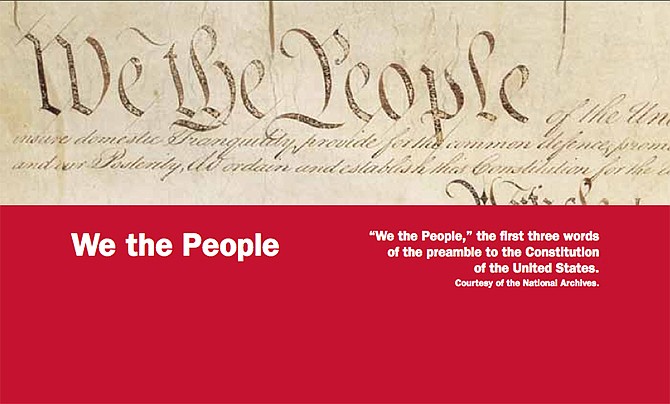Missouri students would be required to pass a civics test before they could graduate from high school or receive the equivalent General Education Degree (GED), under the terms of two bills discussed in the state Senate's Education Committee Wednesday.
And their discussion came just hours after the House gave first-round approval to its version of the proposed law.
"What we're doing is trying to provide our students with a foundation in civics education," Sen. Ryan Silvey, R-Kansas City, explained, "to make sure they understand how their government works - so they'll be active, participating citizens."
Sen. Jeanie Riddle, R-Mokane, added: "For our government to function properly for years to come, our children and grandchildren must be active and knowledgeable participants.
"If the citizens of this state and country choose not to be knowledgeable - or, at least, active participants - then our government never will be "of the people, by the people and for the people.'"
Their bills would require high school students take the 100-question civics test produced by the U.S. Citizenship and Immigration Services.
"The current version," Riddle, a retired teacher, said, "requires them to answer at least 60 questions correctly.
"I would welcome increasing that number, if you so choose."
But Bill Gerling, a retired 31-year social studies teacher who then worked another 16 years at the state Elementary and Secondary Education department, told the Senate committee: "I think this test is the wrong solution. ...
"I'm not opposed to the idea of better civics education - not at all. I think that's extremely important."
While working for DESE, Gerling noted, "I worked quite a bit with the testing element, both with the MAP test and the end-of-course government test and the U.S. history test."
He reminded the lawmakers that, "since the early 1990s, it's been mandated that kids take a state and federal Constitution test" before they graduate from high school in Missouri.
But the civics test proposed by Riddle and Silvey "would replace a local test with a test from a federal agency instead of a locally derived test," Gerling said. "This test is designed for immigrants who are just learning our culture.
"It was not designed for most students, who have lived in the United States all of their lives."
And, if it were to become law, the new mandate would focus on the federal government, and not require any knowledge of Missouri's Constitution. "Students would not have to know anything about state and local governments," Gerling contends.
Otto Fajen, the Missouri National Education Association's lobbyist, suggested the senators look at the House version perfected Wednesday and awaiting a final vote before going to the Senate.
"It moves in the direction of preserving some local control over the design and implementation of the test," Fajen said, "and preserving the statement that it is important for our students to have some instruction and accountability as it relates to the Missouri Constitution and the principles of government."
Former lawmaker Glenn Klippenstein, R-Maysville, urged the lawmakers to make sure there's a civics education requirement.
"It's absolutely fundamental - foundational, I think - to the whole process of growing to be a good citizen," he said. "Knowledge of civics and citizenship allows us to know who we are, how we got here and where we can go."
Brian Bunton said the Missouri Chamber of Commerce and Industry also likes the idea.
"We believe an educated and engaged citizenry makes for a better workforce," he said, "which is great for the business community and the community at large."

